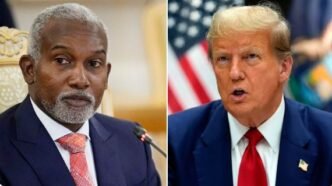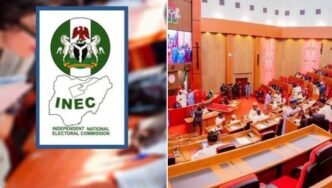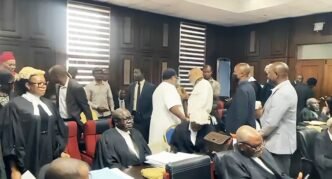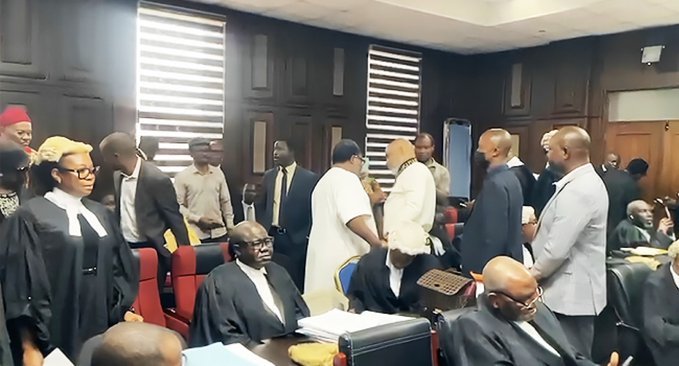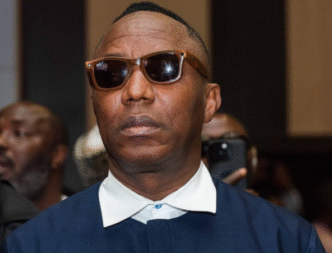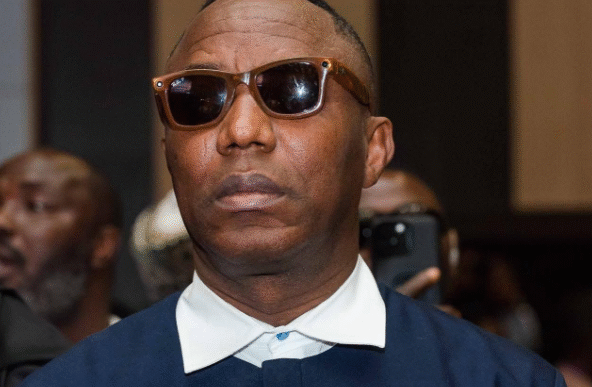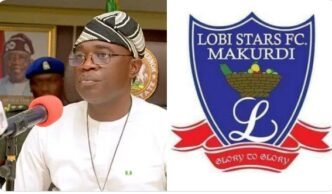ABUJA, October 23, 2025 — Nigeria’s Minister of Foreign Affairs, Ambassador Yusuf Maitama Tuggar, has firmly stated that Nigeria will not accept any deportees from the United States, stressing that such actions must be in accordance with due diplomatic process and mutual respect between both nations.
The minister made this declaration in Abuja on Wednesday while addressing journalists on recent reports suggesting that the U.S. government had finalized plans to deport a group of undocumented Nigerian migrants by the end of October.
Tuggar emphasized that the Nigerian government would not consent to the deportation of its citizens under any arrangement that violates international norms or bilateral agreements.
“Nigeria will not accept any deportees from the United States or any other country if due process is not followed,” Tuggar asserted.
“Every Nigerian, irrespective of their location, is entitled to fair treatment under the law, and we will ensure that the rights of our citizens abroad are respected.”
Background: U.S. Deportation Plans Trigger Diplomatic Concern
Reports emerged earlier this week that the U.S. Department of Homeland Security (DHS) had concluded plans to deport hundreds of foreign nationals, including Nigerians, as part of its intensified immigration enforcement policy.
The move sparked anxiety within diplomatic circles and among members of the Nigerian diaspora community, who feared that many of those listed for deportation were long-term residents or students caught in administrative disputes over visa or documentation issues.
The Nigerian Foreign Ministry, in response, requested official clarification from Washington, insisting that no deportation of Nigerians would be acceptable without proper verification of identity and nationality.
Nigeria’s Firm Diplomatic Stance
Minister Tuggar’s statement underscores a more assertive foreign policy approach under President Bola Ahmed Tinubu’s administration, which has consistently maintained that Nigeria will protect its citizens abroad against unfair treatment.
He reiterated that the government’s priority is the dignity of Nigerians wherever they reside, adding that Nigeria will only cooperate on deportation cases that are transparent, verifiable, and backed by proper documentation.
“We are not against lawful deportations when due process is observed, but we will not tolerate arbitrary or mass expulsions. Any Nigerian slated for deportation must be properly identified, and their rights must be safeguarded,” Tuggar added.
According to him, the ministry is already engaging the U.S. Embassy in Abuja and the Nigerian Embassy in Washington D.C. to ensure that any repatriation issue is handled diplomatically and humanely.
Diaspora Rights and Bilateral Relations
Nigeria and the United States maintain strong bilateral ties, especially in areas of trade, counterterrorism, and education. However, deportation issues have occasionally strained relations, particularly when procedures are perceived as unilateral or disrespectful to sovereign protocols.
The Nigerian Diaspora Commission (NiDCOM) has also been working closely with the Ministry of Foreign Affairs to protect the interests of Nigerians living overseas.
Chairperson of NiDCOM, Abike Dabiri-Erewa, recently noted that while Nigeria recognizes the right of any country to enforce its immigration laws, such enforcement must not trample on human dignity or international law.
“We have had too many instances where Nigerians abroad are mistreated in the name of deportation. The federal government will always step in to ensure fairness,” Dabiri-Erewa said.
Public Reaction and National Implications
The minister’s statement has stirred widespread debate within Nigeria, with many citizens applauding the government’s firm stance.
Civil society groups and human rights organizations have also called for broader reforms to protect Nigerians facing deportation, particularly those in Western countries.
Dr. Henry Ogundipe, a political analyst and lecturer at the University of Abuja, commended the government’s move, describing it as “a long-overdue assertion of national pride.”
“For too long, Nigeria has been seen as a soft target in deportation matters. This statement sends a message that Nigerian lives matter, even outside our borders,” he said.
However, others have urged the government to balance its diplomatic firmness with practical engagement, noting that outright rejection could affect bilateral cooperation in other areas, such as student visas, trade, and security assistance.
Past Precedents of Deportation Disputes
This is not the first time Nigeria has pushed back against mass deportations.
- In 2018, the Nigerian government temporarily suspended deportation flights from the U.K. after several returnees alleged they were mistreated and wrongly identified.
- In 2020, during the COVID-19 pandemic, Nigeria halted acceptance of deportees from Europe due to public health concerns.
- In 2023, the Foreign Ministry intervened in the U.S. deportation of several Nigerians, demanding verification of their national identities before acceptance.
These precedents, experts say, reflect Nigeria’s ongoing effort to ensure that deportations are conducted transparently and respectfully.
Next Steps
The Foreign Affairs Ministry has reportedly summoned U.S. diplomatic representatives in Abuja for further consultations. A joint working committee is expected to be set up to review all pending deportation cases involving Nigerians in the United States.
Minister Tuggar emphasized that Nigeria remains committed to maintaining a constructive relationship with the U.S., but will not compromise on issues of sovereignty and human rights.
“We are partners with the United States in many critical areas, but partnership must be based on mutual respect,” he concluded.
“Every Nigerian citizen deserves to be treated with dignity, and this government will ensure that.”
Conclusion
With this declaration, Nigeria joins a growing list of African nations taking a stronger stance against mass deportations by Western countries.
As global migration pressures intensify, the issue of deportation continues to test diplomatic relations — and Nigeria’s message under Yusuf Tuggar is clear: citizens’ rights come first.

